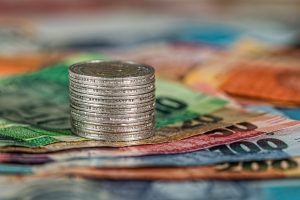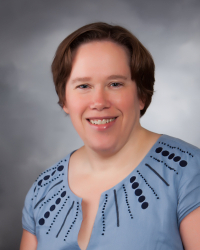Economic Relief Loans for New York Small Businesses, Nonprofits and Landlords:
The New York Forward Loan Fund
New York has established the New York Forward Loan Fund (NYFLF) to assist small businesses, nonprofits, and small landlords as they reopen after the COVID-19 outbreak and New York on PAUSE. This is a $100 million loan program that specifically targets small businesses with 20 or less full-time equivalent (FTE) employees, which accounts for 90% of all businesses, nonprofits, and small landlords that have seen a loss of rental income.

The NYFLF was created to provide working capital loans to support these businesses and organizations so that they have access to credit as they reopen and have upfront expenses necessary for complying with the guidelines under the New York Forward Plan, such as inventory, marketing, refitting for social distancing guidelines, etc. For religious organizations, none of the funds under this program can be used to support religious worship or activities.
This loan program is only for those who did not receive any funds from either the SBA’s Paycheck Protection Program (PPP) or Economic Injury Disaster Loan (EIDL) for COVID-19. It is further focused on those who are typically underserved, underbanked, or otherwise have difficulty accessing capital.
The State will begin taking pre-applications for the NYFLF loans at noon on May 26, 2020. Participating lenders will begin processing applications on June 1, 2020. Priority will be given to those industries that have reopened. Applications will be reviewed on a rolling basis as regions and industries reopen. This is not a first come, first served program. The loans are not forgivable in part or whole, and must be paid back over a 5-year term with interest.
In recognition of the urgent need businesses have for funds, New York is targeting a 2-3 week period from application to closing. To accelerate processing, they urge borrowers to submit a pre-application.
In order to qualify, applicants must meet the following requirements:
- Small businesses and nonprofits must employ 20 or fewer full-time equivalent (FTE) employees;
- Small businesses must have gross revenues of less than $3 million per year;
- Nonprofits must provide direct services and have an annual operating budget of less than $3 million per year; and
- Have not received either a PPP or EIDL for COVID loan.
Additionally, small landlords must have residential buildings with 50 units or less, and the program will prioritize loans for landlords whose properties are in low and moderate census tracts or who serve low to moderate income tenants.
New York has placed $100 million into this loan fund. Of this amount, New York has reserved 65% for small businesses, 30% for small landlords, and 5% for nonprofits. Additionally, the program seeks to distribute the funds for small businesses proportionally by geographic region, specifically:
- Capital Region 4%
- Central NY Region 4%
- Finger Lakes Region 4%
- Hudson Valley Region 12%
- Long Island Region 18%
- Mohawk Valley Region 4%
- NYC Region 30%
- North Country Region 4%
- Southern Tier Region 4%
- Western NY Region 8%
Applications must be made through the NYFLF portal at https://esd.ny.gov/nyforwardloans-info#organizations-available-to-assist. Do not apply directly to the participating lenders.
Small businesses and nonprofits that are in industries and regions that have not yet reopened are encouraged to prepare a pre-application in advance by taking advantage of the application preparation resources available here. This will allow such them to quickly submit their pre-application once it is announced that their industry and region is phased to reopen.
Small Business Eligibility
To be eligible for a NYFLF working capital loan, a small business must meet the requirements detailed below. Eligible businesses[1] must be a corporation, partnership, limited liability company, or sole proprietorship that:
- Employs 20 or fewer full-time equivalent (FTE) employees;
- Gross revenues of less than $3 million per year;
- Has not received a PPP or EIDL (COVID) loan;
- Has suffered a direct economic hardship as a result of COVID-19 related social distancing policies and stay-at-home order that has materially impacted its operations;
- In business for at least 1 year as of the date of loan application; and
- Located in the State of New York.
The pre-application should be completed and submitted by the owner of the business with the largest ownership interest, and all owners with more than 20% ownership will be required to attest to the information therein.
In order to apply, the following information is required from small businesses:
- Most recently filed tax returns, if available and required by the lender; if not available, internally generated financial statements or other documentation used to determine cash flows;
- Schedule of ownership (name, address, Social Security number, phone number, email, percentage ownership, photo ID for any owners with more than 20% ownership);
- Executed Attestation Form (to be provided by lender);
- Brief description of COVID-19 impacts on jobs and revenues;
- Evidence of legal formation of business entity (Articles of Incorporations and/or Bylaws); and
- Personal Credit Report (if applicable).
A participating lender will reach out to the loan applicant to collect the required documentation, conduct any credit checks, and finalize the application review process.
Nonprofit Eligibility
To be eligible for a NYFLF working capital loan, nonprofits must meet the following requirements:
- Organized as 501(c)(3) or faith-based organization (cannot be for support of religious worship or activities);
- Employ 20 or fewer full-time equivalent (FTE) employees;
- Provide direct services[2] to New Yorkers, for example daycare services, legal aid, food banks, soup kitchens, after school programs, senior services, educational programs, clothing banks;
- Annual operating budget of less than $3 million per year;
- Have not received a PPP or EIDL (COVID) loan;
- Have suffered a direct economic hardship as a result of COVID-19 related social distancing policies and stay-at-home order that have materially impacted their operations;
- In operation for at least 1 year as of the date of loan application; and
- Located in the State of New York.
The pre-application should be completed and submitted by a member of the nonprofit’s executive team and will be required to attest to the information therein.
In order to apply for a NYFLF loan, nonprofits must profit the following documentation:
- Most recent audited or reviewed financial statements, as applicable, and most recent internal financial statements, if available;
- Most recently filed IRS Form 990;
- Proof of IRS nonprofit status;
- Evidence of legal formation of nonprofit entity (Articles of Incorporations and/or Bylaws);
- Executed Attestation Form (to be provided by lender);
- Information of the nonprofit’s executive team member signing (name, address, Social Security number, phone number, email, photo ID);
- Brief description of COVID-19 impacts on jobs and revenues; and
- Nonprofit board approval and resolution.
A participating lender will reach out to the loan applicant to collect the required documentation, conduct any credit checks, and finalize the application review process.
Small Landlords
To be eligible for a NYFLF working capital loan, small landlords must meet the following criteria:
- Have no more than 200 units under ownership, and no single property greater than 50 units;
- Properties must either be located in a low or moderate income (LMI) census tract or meet a rent test where property rents are affordable to tenants of low and moderate income;
- Properties must have positive cash flow for a 12-month period prior to the loan request;
- Properties must have an active forbearance agreement for their mortgage, or proof that they have not missed a monthly debt service payment in the last 12 months, and/or no active mortgage;
- Properties must be current on their property taxes through March 2020;
- Property owners must attest that they will not evict COVID-impacted non-paying tenants;
- Properties must be in good repair, with no major life and safety violations;
- Have not received a PPP or EIDL (COVID) loan;
- Have suffered a direct economic hardship as a result of COVID-19 related social distancing policies and stay-at-home order that have materially impacted their operations;
- In business for at least 1 year as of the date of loan application; and
- Properties must be located in the State of New York.
The pre-application should be completed and submitted by the owner of the business with the largest ownership interest, and that all owners with more than 20% ownership will be required to attest to the information therein.
In order to apply for a NYFLF loan, small landlords must provide the following documentation:
- Most recently filed tax returns, if available and required by the lender;
- 2019 Income and Expense statement;
- Property Rent Roll showing economic impact;
- Schedule of ownership (name, address, Social Security number, phone number, email, percentage ownership, photo ID for any owners with more than 20% ownership);
- Executed Attestation Form (to be provided by lender);
- Hardship Letter specifying COVID-19 impacts on jobs and revenues;
- Forbearance Disclosure Statement;
- Evidence of legal formation of business entity (Articles of Incorporations and/or Bylaws); and
- Personal Credit Report (if applicable).
A participating lender will reach out to the loan applicant to collect the required documentation, conduct any credit checks, and finalize the application review process.
Loan Terms
The loan terms are as follows:
- Loan Amount:
- Small Businesses: Small businesses can apply for a loan in the amount of the lesser of (a) $100,000 or (b) up to 100% of average monthly revenues in any 3-month period from 2019 or first quarter of 2020.
- Nonprofits: Nonprofits can apply for a loan in the amount of the lesser of (a) $100,000 or (b) up to 100% of average monthly expenses in any 3-month from 2019 or first quarter of 2020.
- Small Landlords: Small Landlords can apply for a loan in the amount the lesser of (a) $100,000 or (b) projected reduction in 3-months’ net operating income based on actual reductions in net operating income for the month of April or May 2020.
- Interest Rate:
- Small businesses and landlords: The fixed annual interest rate on the loan will be 3%.
- Nonprofits: The fixed annual interest rate on the loan will be 2%.
- Repayment:
- For months 1 – 12: Interest only payments, paid monthly.
- For months 13 – 60: interest and principal payments, paid monthly.
- Term: 5 years (60 months).
- Proceeds:
- Proceeds are required to be used for working capital, inventory, marketing, refitting for new social distancing guidelines, operating and emergency maintenance, property taxes, utilities, rent, supplies, etc.
- Refinancing of an existing loan is not permitted.
- The loan applicant will be required to detail anticipated use of funds when they apply.
- Borrower Fees: No application fees. Late fee will be assessed for missed payments.
- Recourse: No collateral is required.
- Prepayment: Borrower may prepay the loan without penalty.
Additional Resources
The program application and website can be accessed here: https://www.connect2capital.com/partners/new-york-forward-loan-fund/
And here: https://esd.ny.gov/nyforwardloans-info#organizations-available-to-assist
For additional information, there are detailed FAQ at the program website: https://esd.ny.gov/sites/default/files/NYFLF-ESD-FAQ-052220.pdf
New York has also put together a network of organizations to assist businesses with their applications. https://esd.ny.gov/nyforwardloans-info#organizations-available-to-assist
[1] The following businesses are not eligible for a NYFLF loan: corporate-owned franchises, not-for-profit social clubs, branch banks, pay day loan stores, pawn shops, astrology, palm reading, liquor stores, night clubs, adult bookstores, massage parlors, strip clubs, track waging facilities, trailer-storage yards, and marijuana dispensaries.
[2] Directed services are a program or activity that works directly with an intended population. It does not include programs that seek to change conditions through advocacy or public education.
For more information contact attorney Elizabeth A. Genung



